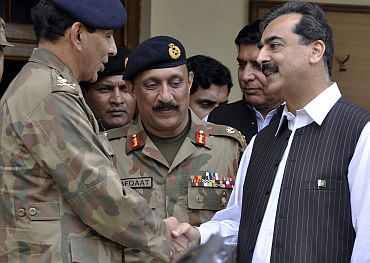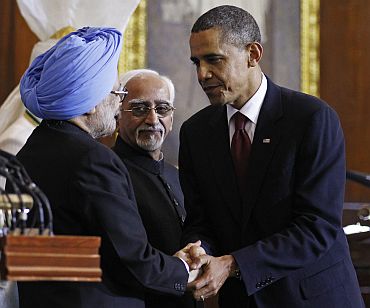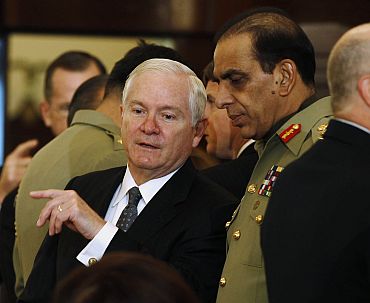
Four militant groups, including India focussed Lashkar-e-Tayiba, receives covert support from Pakistan's influential army and "no amount of money" from America will change the policy, according to a newspaper report on Wednesday.
Pakistan's army is covertly sponsoring four major militant groups, the US ambassador in Pakistan warned in a frank critique revealed by the US state department cables, the Guardian reported.
Text: PTI
Please ..

Pakistan, it said, had received more than $ 16 billion in American aid since 2001, but "there is no chance that Pakistan will view enhanced assistance... as sufficient compensation for abandoning support to these groups", US Ambassador Anne Patterson wrote in a secret review of Afghanistan-Pakistan strategy in September 2009.
Secret cables, which were leaked by WikiLeaks, show that US diplomats and spies believe Pakistan army and its Inter-Services Intelligence continue to quietly back four militant groups -- the Afghan Taliban, its allied Haqqani and Hekmatyar networks on the western Afghan frontier, and LeT on the eastern border with India.
Some ISI officials "continue to maintain ties with a wide array of extremist organisations, in particular the Taliban, LeT and other extremist organisations," US Secretary of State, Hillary Clinton wrote in December 2009.

Resolving the 63-year-old Kashmir conflict "would dramatically improve the situation", Patterson said.
"We need to reassess Indian involvement in Afghanistan and our own policies towards India, including the growing military relationship through sizeable conventional arms sales, as all of this feeds Pakistani establishment paranoia and pushes them closer to both Afghan and Kashmir-focused terrorist groups while reinforcing doubts about US intentions," she said.
The British daily reported that Pakistan army chief General Ashfaq Kayani had been "utterly frank" about the 'consequences' of a pro-India government coming to power in Kabul, according to a 2009 briefing in advance of his visit to Washington.

"The Pakistani establishment will dramatically increase support for Taliban groups in Pakistan and Afghanistan, which they see as an important counterweight."
Alarmed by the links with Haqqani, whose fighters kill American soldiers in Afghanistan, and fearful that policy towards LeT could trigger nuclear war with India, US officials have urged Kayani to change course.
"The biggest single message Kayani should hear in Washington is that this support must end," said one dispatch.
In a March 2009 briefing to Federal Bureau of Investigation Director Robert Mueller, the embassy noted that ISI chief General Shuja Pasha, "continues to profess a determination to end ISI's overt and tacit support for proxy forces".
The cables, The Guardian said, betray much American frustration and anger at alleged Pakistani duplicity.